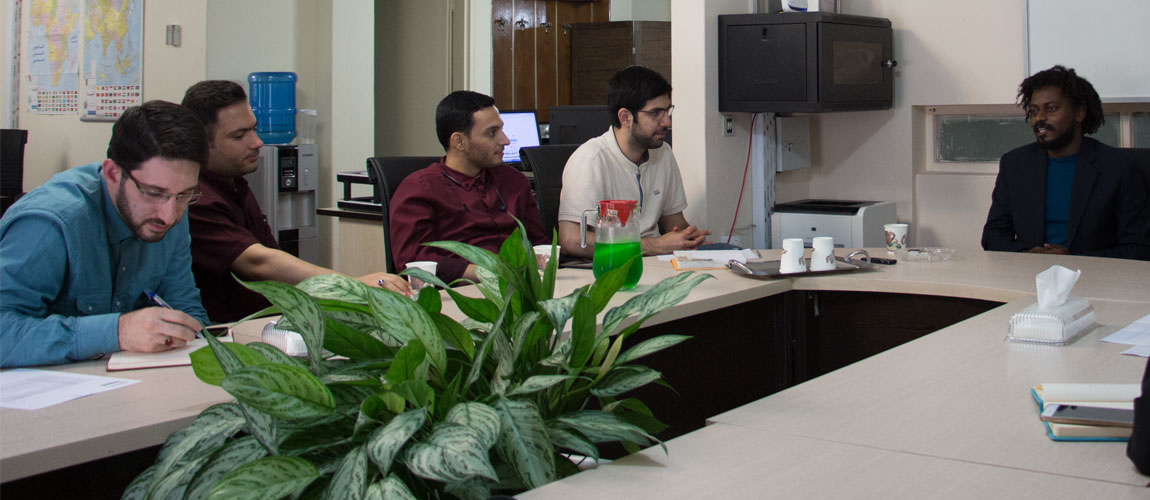Peace Spirit Foundation held another “knowing the nations” session on Sudan on Monday afternoon in the presence of Tariq Ibrahim, a Sudanese student who studies nursing in a university in central Iran.
Ibrahim started the session talking about the motivations of studying in Iran noting that the religious government of Islamic Republic has been subject to some criticism and prejudices among Sudanese people and families had objections on sending their children to Iran. Yet against all these issues and under the support of his family, Ibrahim found the opportunity to travel to Iran following which he turned into a Shia Muslim. Unfortunately he was fired from his university in Sudan after that and preferred to continue his studies in Iran.
Talking on education in Sudan, Ibrahim underlined that Muslim Brotherhood took the power on 1989, education was free in all levels; “even it is clearly mentioned in guidelines of University of Khartoum than no one should be deprived of education due to economic shortcomings however issues have changed during recent years.”
The political developments of Sudan were also discussed during the meeting where Mr. Ibrahim noted that the system has changed from a democratic republic to a federal republic during recent years. “A prominent figure of political developments has been Hassan al-Torabi who made great steps as a national figure but Sudan moved backward after joining hands with Muslim Brotherhood,” he said.
“Sudan is a traditional country,” Ibrahim said while talking on cultural aspects of his country noting that “Sudanese, particularly in small towns, follow local subcultures but you can see elements of modernization in some districts of the capital.” Calling hospitability and respecting guests as outstanding characteristics of Sudanese, he said some villages and towns host their gusts in special residents called “Diwan”.
Criticizing the approaches taken by Muslims in recent years, Ibrahim said such approaches and measures make youth to keep away of Islamic groups and thoughts and get closer to the Western culture; “Muslim Brotherhood had acted wrongly in many different ways including the foreign policies and relations with Iran; Tehran and Khartoum had long-lasting ties, which was severed after Muslim Brotherhood came to the power; this is while Islamic Republic of Iran has been a supporter to the organization,” he emphasized.
Dividing Sudan to Northern and Southern states was also touched upon by Foundations Sudanese guest Mr. Ibrahim. “People of Southern Sudan were considered as second class citizens and were maltreated. They organized an armed movement in 60s, which was followed by a treaty yet violated by Northern Sudanese.”
“Peace activities, or better said, any civic issue in undeveloped countries need informing and awakening the public; without education neither effort would be made, nor it would accomplish,” he concluded.
